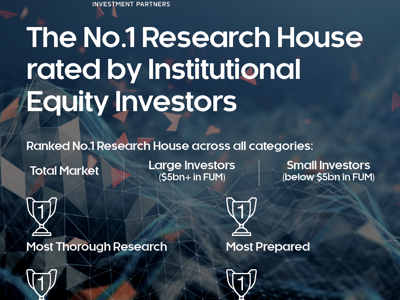Share markets globally have largely shaken off higher interest rates this year with many companies relatively immune to higher credit costs. However, that could change if the world falls into recession, according to Zenith Investment Partners head of portfolio solutions, Steven Tang.
“So far, interest rate rises have had little impact on the economy and share markets, though they have impacted the bond market,” Mr Tang says.
“Earnings and economies have been resilient, and we attribute this to a reduction in interest rate exposure across companies and households following the easy monetary policy we had for so long, which allowed many companies and households to lock in low rates on their debt.
“However, higher interest rates could eventually start to bite. There are already emerging signs of stress in terms of highly leveraged households and slowing Australian economic growth,” he says.
“We expect that winners and losers will emerge as share market volatility increases, creating opportunities for active stock selection.
“Should we enter a recessionary environment, we expect higher quality companies to out-perform and we have therefore increased our exposure to quality focussed equity fund managers. As a consequence, our portfolios are well equipped to perform in a broad range of markets.”
While Mr Tang expects a soft economic landing, he says a more pronounced recession is a possibility, and that Australian firms were more vulnerable than US companies given higher inflation and a greater exposure to interest rates.
“Recessions are not good for equities as earnings usually take a hit, but the outcome can be varied depending on the depth of the recession and where it plays out the most,” Mr Tang says.
“Australia is more vulnerable to a recession, given the household sector is more leveraged and it has a higher exposure to variable interest rates. The central bank too has taken a more dovish approach to setting interest rates than in the US, where inflation has moderated more materially.
“Businesses that can generate sustainable cash flows and are able to internally fund their growth will gain an advantage over businesses that rely on external funding for their growth.
“With the recent market weakness, we are now seeing some asset classes that have previously been expensive now looking cheap. One of these is global small caps, which are priced for a more pessimistic outlook, which isn’t in our base case. They also look cheap relative to large caps. Similarly, valuations in some emerging markets are also looking more attractive as are interest rate sensitive sectors such as infrastructure.”
Meanwhile, Mr Tang says government bonds are also looking more attractive with investment returns of around 4 to 5 per cent, similar to cash investments. However, growth-focused, higher risk assets are essential for portfolio diversification and to generate meaningful returns over time.
“Bond yields are higher and accordingly, we have been progressively increasing exposure to high quality government bonds in our portfolios.
“But 4 to 5 per cent returns aren’t quite as good when inflation is running at 5 to 6 per cent. However, with equities, corporate profits can grow at the inflation rate, so the capital base is both protected and growing.”
Mr Tang says there are ample opportunities to generate attractive returns above cash and other low-risk investments when adopting a diversified approach to equity investing.
“While corporate profits can be a casualty of higher interest rates, high-quality equities remain a must for diversification and as a hedge against inflation. We favour high quality companies in a strong financial position where their debt is either longer dated or at comfortable levels.”





